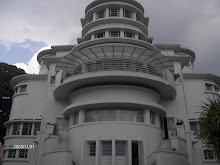Course : Foundation of Literature
Code : IG105
Credits : 2 Credit Hours
Instructors : Rd. Della Nuridah Kartika Amirulloh, S. Pd., M.Ed.
Name : Agung Ginanjar Anjaniputra
Std. Number : 0808476
Class : 3B
History of English
Today's English is the continuation of the language of the 5th-century Germanic invaders of Britain. No records exist of pre-invasion forms of the language. The language most closely related to English is the West Germanic language Frisian. The history of English is an aspect of the history of the English people and their development. Thus in the 9th century the standard English was the dialect of dominant Wessex (see Anglo-Saxon literature). The Norman Conquest (11th century) brought in foreign rulers, whose native language was Norman French and English was eclipsed by French as the official language. When English became again (14th century) the language of the upper class, the capital was London, and the new standard (continued in Modern Standard English) was a London dialect.
It is convenient to divide English into periods—Old English (or Anglo-Saxon; to c.1150), Middle English (to c.1500; see Middle English literature ), and Modern English; this division implies no discontinuity, for even the hegemony of French affected only a small percentage of the population. The English-speaking areas have expanded at all periods. Before the Normans the language was spoken in England and S Scotland, but not in Cornwall, Wales, or, at first, in Strathclyde. English has not completely ousted the Celtic languages from the British Isles, but it has spread vastly overseas.



Tidak ada komentar:
Posting Komentar